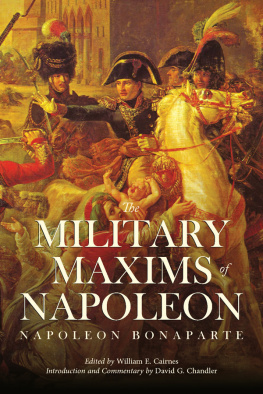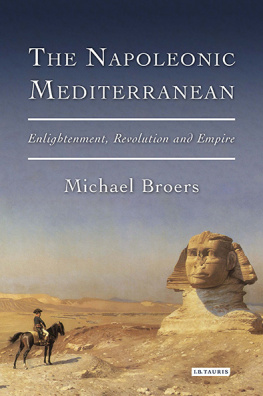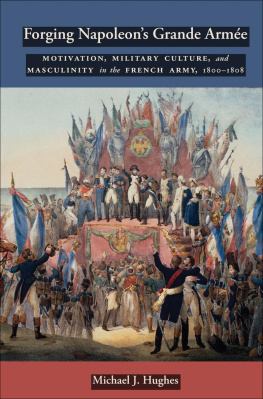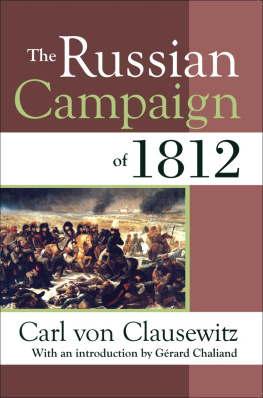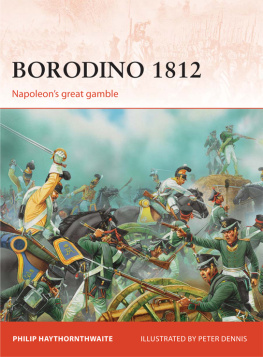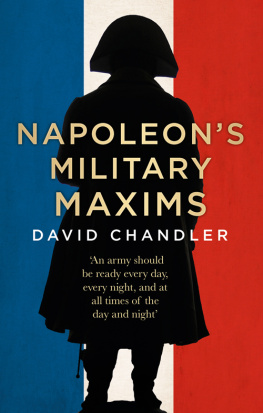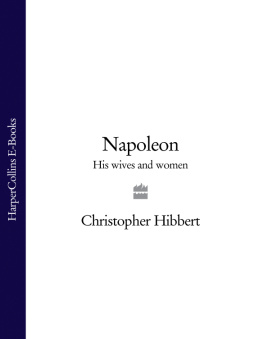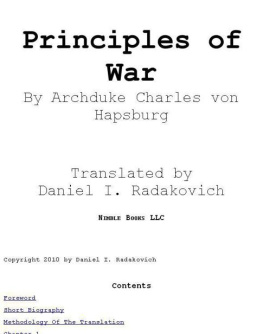
Copyright 2016 by Napoleon Bonaparte
All rights reserved. No part of this book may be reproduced in any manner without the express written consent of the publisher, except in the case of brief excerpts in critical reviews or articles. All inquiries should be addressed to Skyhorse Publishing, 307 West 36th Street, 11th Floor, New York, NY 10018.
Skyhorse Publishing books may be purchased in bulk at special discounts for sales promotion, corporate gifts, fund-raising, or educational purposes. Special editions can also be created to specifications. For details, contact the Special Sales Department, Skyhorse Publishing, 307 West 36th Street, 11th Floor, New York, NY 10018 or info@skyhorsepublishing.com.
Skyhorse and Skyhorse Publishing are registered trademarks of Skyhorse Publishing, Inc., a Delaware corporation.
Visit our website at www.skyhorsepublishing.com.
10 9 8 7 6 5 4 3 2 1
Library of Congress Cataloging-in-Publication Data is available on file.
Cover design by Qualcom Designs
ISBN: 978-1-63450-523-9
Ebook ISBN: 978-1-63450-831-5
Printed in the United States of America

CONTENTS

TABLE OF MAXIMS

To
Those Officers of the British Army
into whose hands
the original may not have fallen, or who
may have wanted an opportunity
of combining the study of
science with its practical application, this little
volume is inscribed as a fresh incitement to
professional enterprise and acquirement by their faithful and
obedient servant
T HE T RANSLATOR

GENERAL INTRODUCTION
by David G. Chandler
N O major edition of Napoleons Military Maxims has been published in Great Britain since the turn of this century, notwithstanding there having been many, many dramatic military events upon which comment in the context of Napoleons military genius might well be made. Consequently it would seem an apposite moment to produce an up-dated version of the 1901 edition, retaining the observations of William E. Cairnes relating to the Great Boer War and the original annotations dating back to 1831 or possibly earlier, but adding, in the main, comments on the basis of selected dramatic military happenings of this century the two World Wars, Korea, the post-1945 struggles associated with decolonisation, Vietnam, the Falklands, Grenada, and the Middle Easts whole range of conflicts from 1948 to the present, not to exclude the Gulf War and current events in Afghanistan both of which wars have now long passed their seventh anniversaries. Napoleon would today have been more of a hawk than a dove of peace, and his views on the on-going nuclear debate would have been direct and not to the liking of the fainthearted. It is a principle of war, he once wrote, that when it is possible to employ thunderbolts their use should be preferred to that of cannon.
What, then, is a maxim? The Concise Oxford Dictionary defines the term as coming from the Latin adjective maxima, greatest: A general truth drawn from science or experience; principle, rule of conduct. Given Napoleons proclivity for rattling off ideas in rapid succession (he could, in the pre-shorthand era, keep five secretaries simultaneously employed in writing different letters to his dictation, pacing from one to another as they sat around his office to give each a sentence at a time without ever losing or confusing his separate chains of thought), we might be excused for wondering if there was any possible connection with Sir Hiram S. Maxim, inventor of the single-barrelled quick-firing machine-gun that came to bear his name.
The practical value of military maxims can be debatable. Napoleon, of course, never formulated a precise system of warfare on paper. His genius was essentially that of a practical soldier-statesman, rather than a theorist per se, and he also saw no point in giving his concepts to even the marshalate, never mind his opponents or posterity. Consequently the collecting of his obiter dicta into any kind of military rule-book for future generations to apply is a process fraught with perils and pitfalls. When writing to subordinates, Napoleon invariably tailored his orders or advice to what he wished the particular recipient at the particular time to receive in order to deal with a specific situation, actual or impending. Consequently it is possible to find many instances in the massive Correspondance of apparently contradictory advice being offered in different places just as it is all too easy to find at first sight contradictory passages in Holy Writ justifying or challenging almost every conceivable type of human conduct particularly if the Old Testament is taken too literally into account. Thus great care has to be taken in reading any particular message of generalised significance into any particular maxim; much lies in taking into account the precise circumstances surrounding a Napoleonic pronouncement before assessing its timeless (or otherwise) validity.
Napoleon was by birth a Corsican brought up as a boy to speak Italian and, despite his immense intellect, there is evidence that he never to the end of his life fully mastered the intricacies and finer points of the French language, particularly its subtle use of idiom. Consequently small misunderstandings could creep into his expressions whether oral or written a factor that has only served to increase the bafflement of later generations of military students seeking the message of the master through the medium of his utterances or writings. For example, one of his best-known sayings is the following: The principles of war are the same as those of a siege. Fire must be concentrated on a single point [authors emphasis] and as soon as the breach is made the equilibrium is broken and the rest is nothing. As the late Sir Basil Liddell-Hart pointed out, most commentators have seized upon the single point aspect and have ignored the really crucial word equilibrium, which indubitably holds the real point the Emperor was trying to convey: it is through upsetting the foes psychological balance that the road to success lies. Further controversy has been attracted to the word point, some maintaining that Napoleon was implying the strongest sector of an enemys defences, others that he meant the weakest. However, the actual study of the campaign that gave rise to the comment in the first instance, the operations fought against Piedmont in 1794, makes it highly probable that Napoleon really meant the hinge or joint of the enemy dispositions. Thus a small matter like the careless use of a single word can lead to doubt and misrepresentation. Many ideas have been attributed to Napoleon in works such as the Maxims that he would be the first to refute if his intention was to illustrate a specific point rather than propound a general principle.
Nevertheless, despite such minefields awaiting the unwary, and the immense changes that have affected the conduct of warfare since 1815 particularly at the technological level there is much still to be found of relevance and value in pondering Napoleons Military Maxims, providing all necessary allowance is made for those changes and possible inner meanings. All wars, regardless of period, are more like one another than any other form of human undertaking, as Professor Michael Howard has sagely remarked. Any campaign taken properly in context can be studied to considerable effect, if only to indicate what not to do in certain situations, and that, as the Duke of Wellington remarked of the Grand Old Duke of Yorks Flanders Campaign of 1794 (which inspired the famous nursery rhyme), is always something. The fact is that the basic essentials of warfare and leadership have barely changed over the ages of recorded history despite many superficial appearances to the contrary. And, as will be seen in the new annotations being added to those originally written in 1831, many (although not quite all) of Napoleons maxims still have relevance when applied to the most recent struggles of the strife-torn 20th century.

